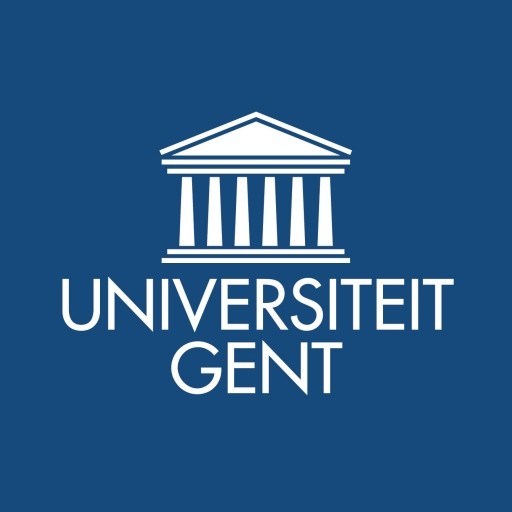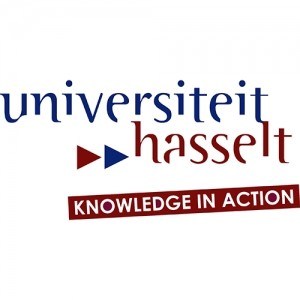Photos of university / #thefoundry_ugent
Environmental Sanitation at Ghent University is a comprehensive interdisciplinary master's program designed to equip students with the knowledge and skills necessary to address the complex challenges of environmental health and sustainable sanitation systems. The program focuses on the management and treatment of various waste streams, water quality management, waste-water treatment techniques, and sustainable practices that protect public health and the environment. Students will explore topics such as water and wastewater treatment processes, solid waste management, environmental monitoring, sanitation infrastructure, wastewater reuse, and policies related to environmental health protection. The curriculum combines theoretical foundations with practical applications, including laboratory work, field projects, and internships, to foster hands-on experience. Emphasizing innovation and sustainability, the program encourages students to develop creative solutions for sanitation issues faced by urban and rural communities worldwide. Graduates will be prepared for careers in environmental consultancy, water treatment facilities, government agencies, and international organizations working on sanitation and hygiene promotion. The program is taught in English and benefits from Ghent University's strong research orientation and collaboration with industry partners. Students will have the opportunity to participate in cutting-edge research projects, attend seminars, and engage with professionals in the field. Overall, the Master's in Environmental Sanitation aims to produce highly skilled experts who can contribute to improving sanitation systems, water quality, and environmental health at local, national, and global levels. The program fosters critical thinking, problem-solving skills, and a multidisciplinary approach to sustainable development challenges related to sanitation and environmental management.
General Courses
- Biosolids and Solid Waste Treatment
- Environmental Ecology
- Ecological Risk Assessment
- Applied Statistics
- Analysis and Abatement of Air Pollution
- Water Quality Management
- Environmental Microbiology
- Analysis and Abatement of Water Pollution
- Environmental Soil Science
- Biotechnological Processes of Environmental Sanitation
- Clean Technology
- Environmental Impact Assessment: Integrated Project
Major Air
- Advanced Waste Gas Treatment
- Urban and Indoor Air Pollution
- Atmospheric Dispersion Modelling
Major Soil
- Soil Remediation
- Quality of Groundwater Resources
- Contaminant Transport in Soils
Major Water
- Natural Systems for (Waste)Water Treatment
- Quality of Groundwater Resources
- Water Quality Modelling
Elective Courses
Module Management
- Management of Natural Resources
- Environmental Economics and Policy
- Environmental Legislation
- Bio-ethics
Module Human Health
- Environmental Virology and Parasitology
- Environmental Noise
- Basic concepts in Public Health and Epidemiology
Module Advanced Technologies
- Microbial Re-use Technology
- Membrane Processes in Environmental Technology
- Basics of Control Engineering and Process Engineering
Module Earth and Soil
- Soil Degradation
- Meteorology and climatology
- Plant-Water Relations in the Soil-Plant-Atmosphere Continuum
- Soil Water Management
- Land Information Systems
Module Environmental Impact
- Environmental Impact of Global Change
- Life Cycle Assessment
- Aquaculture Environmental Impact
- Environmental Impact of Pesticides
Requirements
- Applicants must have at least a Bachelor's degree of min. 3 year with good overall scores (at least a second class upper or equivalent).
- Applicants must be able to demonstrate through their transcripts basic science training in at least 5 out of 7 of the following fields: (i) Mathematics, including basic statistics; (ii) Physics; (iii) Chemistry; (iv) Biochemistry; (v) Biology; (vi) Microbiology; (vii) Engineering. Some background in aquaculture is recommended too.
- Language requirements:
The applicant must be proficient in the language of the course or training programme, i.e. English. The English language proficiency can be met by providing a certificate (validity of 5 years) of one of the following tests: (TOEFL/IELTS predictive tests and TOEIC will not be accepted)
- TOEFL IBT 80
- TOEFL PBT 550
- ACADEMIC IELTS 6,5 overall score with a min. of 6 for writing
- CEFR B2 Issued by a European university language centre
- ESOL CAMBRIDGE English CAE (Advanced)
Scholarships
- VLIR-UOS Scholarships
- Master grants
- University Development Cooperation Programme
The Master's degree programme in Environmental Sanitation at Ghent University offers students an in-depth understanding of the scientific principles and practical applications related to environmental health and sanitation. This interdisciplinary program combines elements of environmental engineering, public health, and environmental science to prepare graduates for addressing complex sanitation challenges faced by urban and rural communities worldwide. The curriculum covers a broad range of topics, including water treatment, wastewater management, solid waste processing, and the prevention of environmental pollution. Students gain comprehensive knowledge about sustainable sanitation systems, innovative technologies, and policy frameworks necessary for effective environmental management.
Throughout the programme, students engage in both theoretical coursework and practical training, often collaborating on research projects, case studies, and fieldwork activities. This hands-on approach ensures that graduates are well-equipped to develop, implement, and assess sanitation solutions tailored to diverse regional needs. The programme also emphasizes critical skills such as project management, environmental impact assessment, and stakeholder communication, which are essential for professional success in the field.
Ghent University’s programme in Environmental Sanitation is characterized by a strong international orientation, fostering intercultural competence and awareness of global environmental challenges. Students have opportunities for exchange programmes, internships, and collaboration with international institutions, enhancing their global perspective and employability. Graduates of this programme find career opportunities in public authorities, environmental consultancy firms, non-governmental organizations, and international agencies focused on sanitation and environmental health. The degree aims to produce experts who can contribute to sustainable development goals by improving sanitation infrastructure, promoting environmental health, and ensuring the safe management of waste and water resources for present and future generations.



